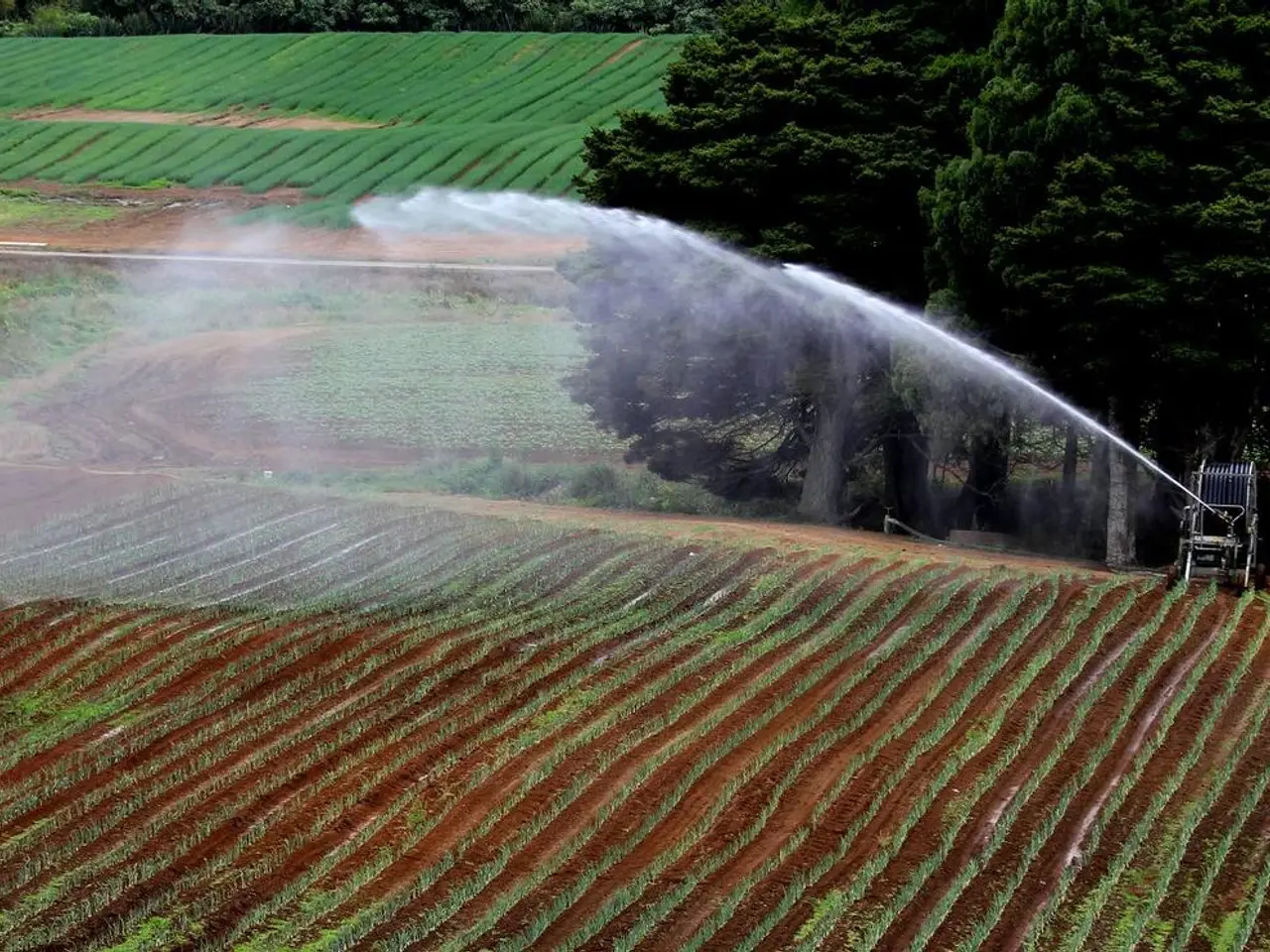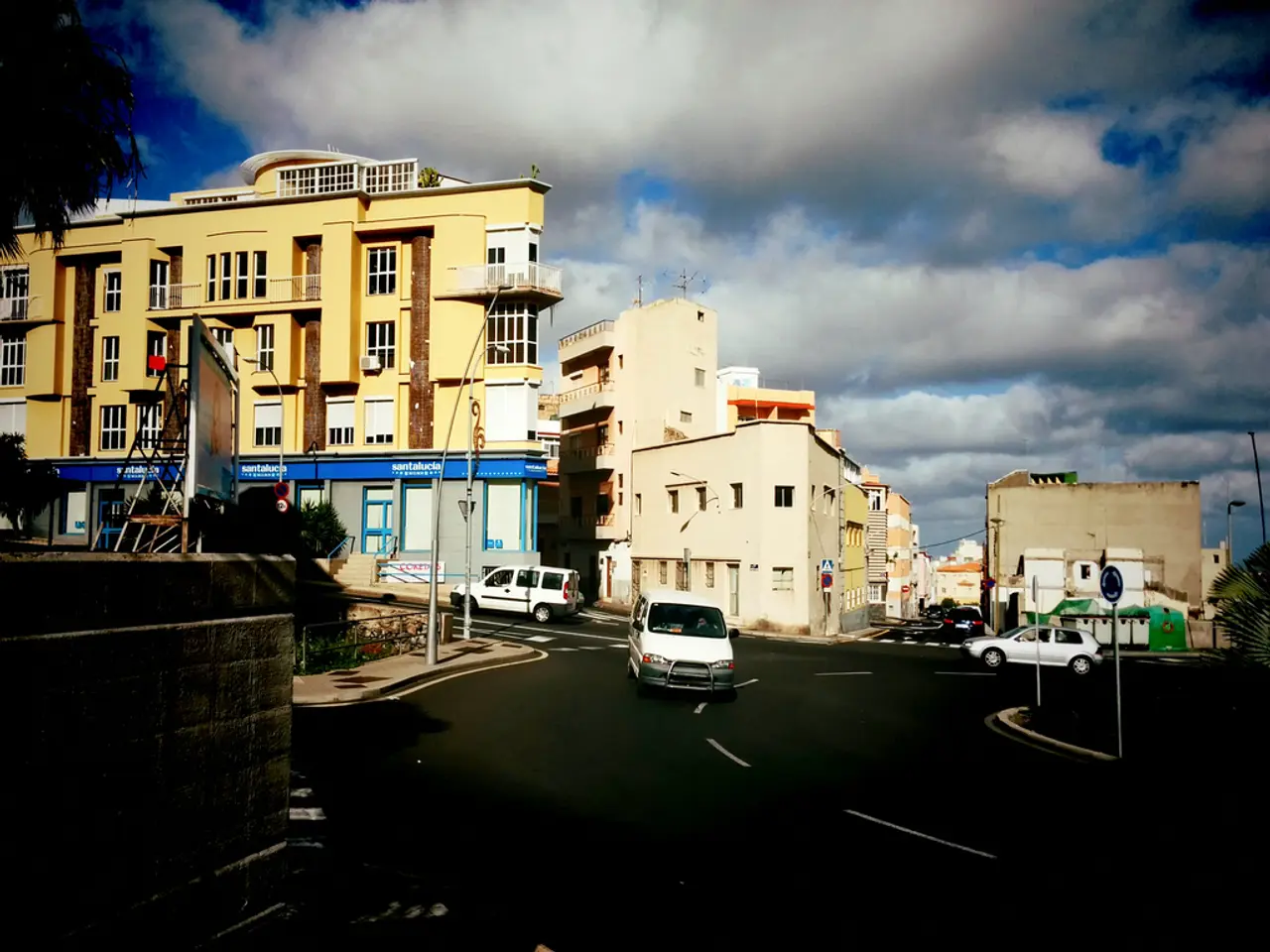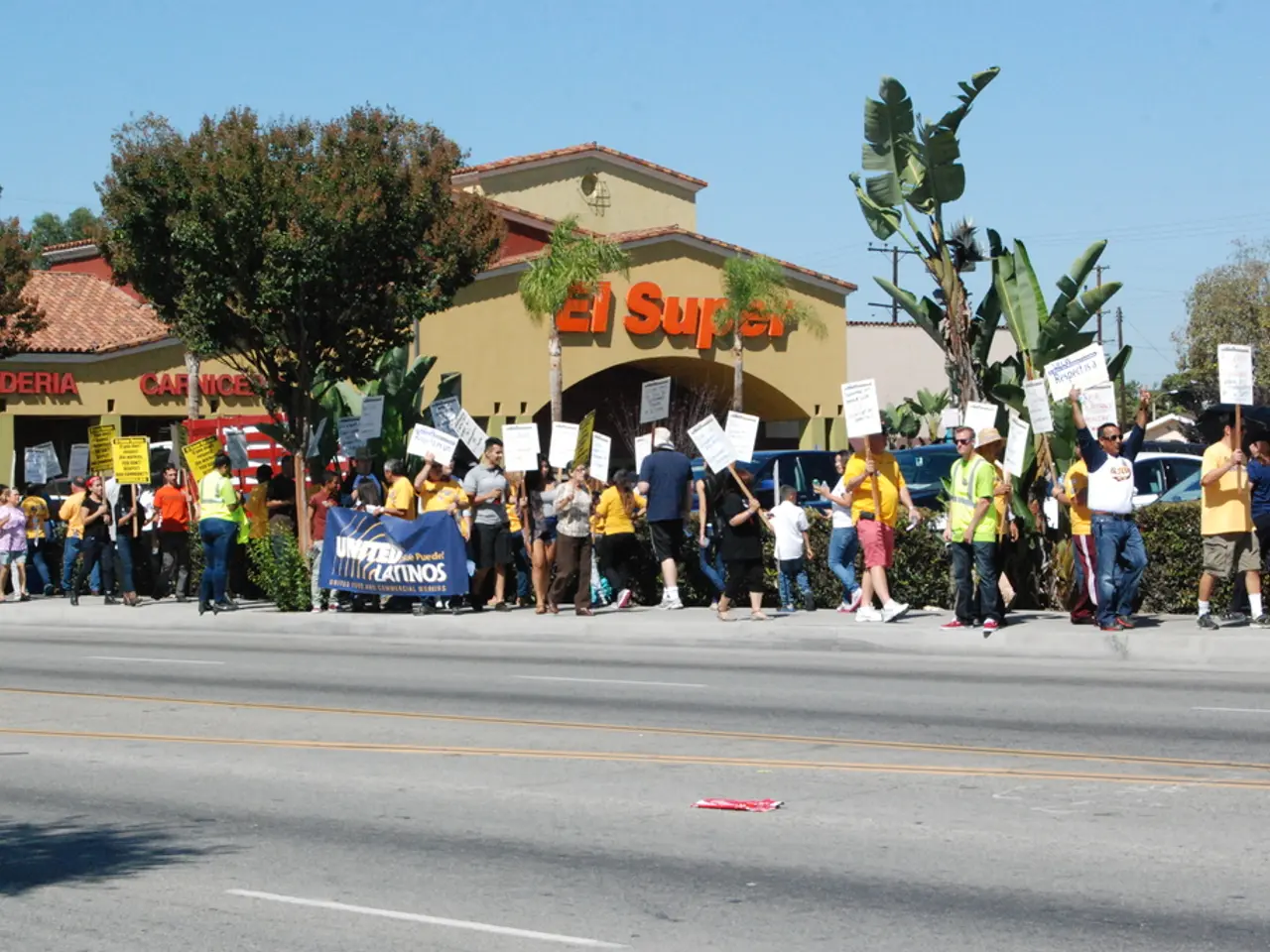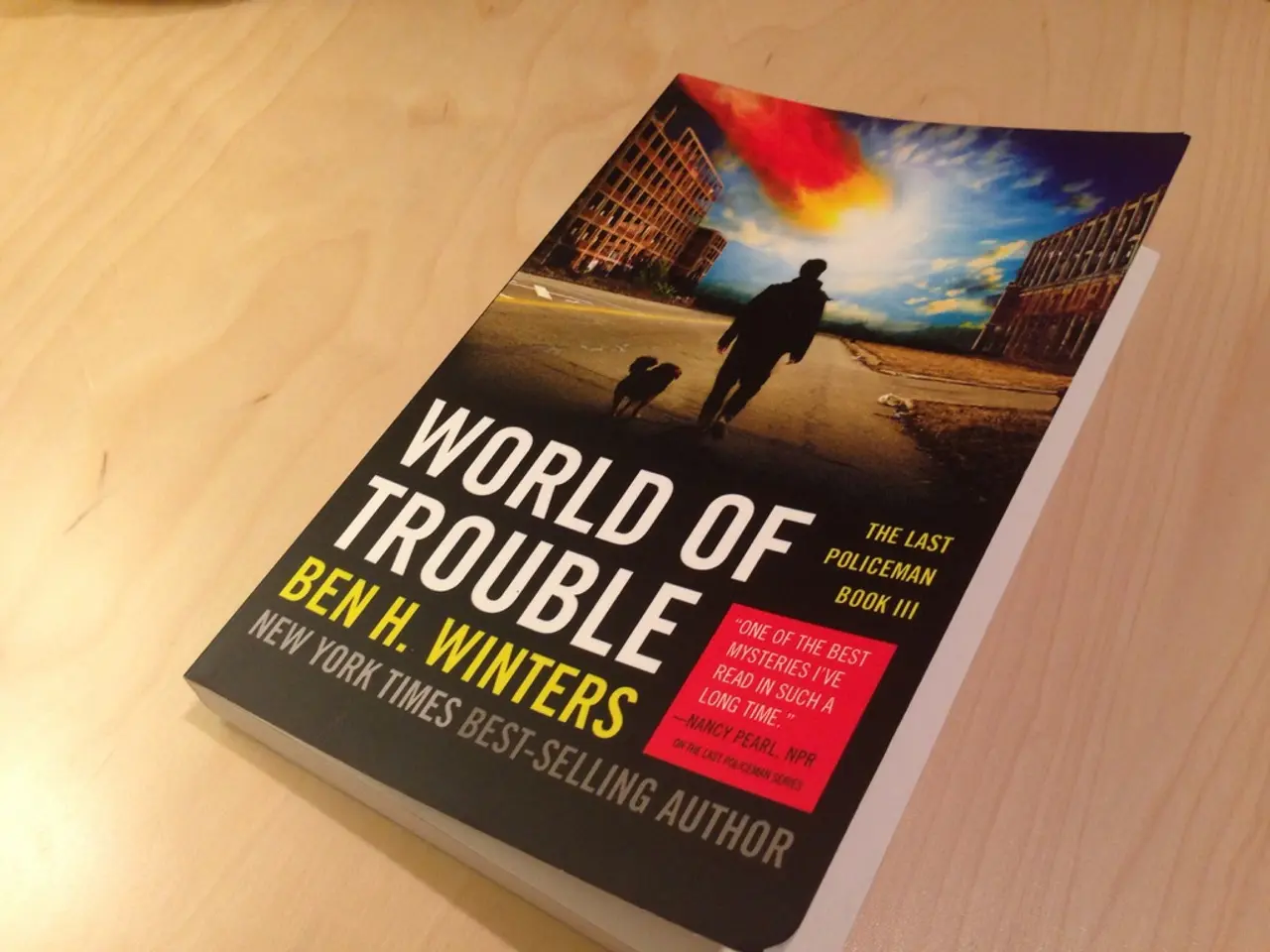Struggling farmers, hit by floods, call for government aid
In the heart of Nueva Ecija province, farmers are facing a double whammy of flooded palay plantations and plummeting rice prices, threatening their livelihoods and financial stability. The situation is particularly dire for farmers like Norberto Castro, who has been cultivating rice for four decades.
The flooding, which occurred after a recent thunderstorm, has destroyed or deteriorated the quality of Castro's crops, reducing his yields and income. The situation is further compounded by the low farmgate prices of palay, with the price of soaked unhusked palay dropping to as low as ₱6.00 per kilo, below the government-prescribed trading rate. Castro, who relies on loans for farming capital, is unable to afford drying his palay due to high costs, and instead, is storing his unsold produce in his barn, refraining from selling.
The low prices are largely due to the 2019 Rice Tariffication Law, which has allowed unlimited importation of cheaper foreign rice. This has led to a glut of imported rice competing with local production at much lower prices. As a result, the National Food Authority (NFA) can no longer purchase palay from local farmers at competitive prices, significantly weakening government support for domestic rice farmers.
In response, the provincial government of Nueva Ecija has launched a Palay Price Support Program through the Provincial Food Council (PFC). This initiative aims to buy palay from farmers at fairer prices (around ₱10-₱12 per kilo) and then mill and sell rice to consumers locally at about ₱20 per kilo via rolling stores. The program is designed to help farmers recover income and maintain their livelihoods despite market liberalization and price drops.
The situation is not unique to Castro. Edwin Galang, a farmer with a 15-hectare palay farm, has sold 800 sacks of his harvest at a losing price. Farmers in Cabiao town are seeking government help due to flooded palay paddies in Barangay Santa Isabel.
As farmers continue to incur losses due to high costs of seeds, fertilizers, and other agricultural commodities, they are looking to President Ferdinand Marcos for assistance. The challenges faced by these farmers highlight the need for continued support and intervention from the government to ensure the sustainability of the agricultural sector and the livelihoods of those who depend on it.
Sources: [1] Inquirer.net, 2021. 'Nueva Ecija farmers suffer losses from flooded palay plantations, low farmgate prices.' Retrieved from https://newsinfo.inquirer.net/1436424/nueva-ecija-farmers-suffer-losses-from-flooded-palay-plantations-low-farmgate-prices [2] Rappler.com, 2021. 'Nueva Ecija farmers suffer losses from flooded palay plantations, low farmgate prices.' Retrieved from https://www.rappler.com/nation/local-news/365255-nueva-ecija-farmers-suffer-losses-from-flooded-palay-plantations-low-farmgate-prices [3] Manila Bulletin, 2021. 'Nueva Ecija farmers suffer losses from flooded palay plantations, low farmgate prices.' Retrieved from https://mb.com.ph/2021/05/17/nueva-ecija-farmers-suffer-losses-from-flooded-palay-plantations-low-farmgate-prices/
The flood, due to a recent thunderstorm, has destroyed or degraded Castro's crops, leaving him with reduced yields and income. The government's inability to purchase palay from farmers at competitive prices, as a result of the 2019 Rice Tariffication Law, further deepens the financial struggle for farmers like Castro.








